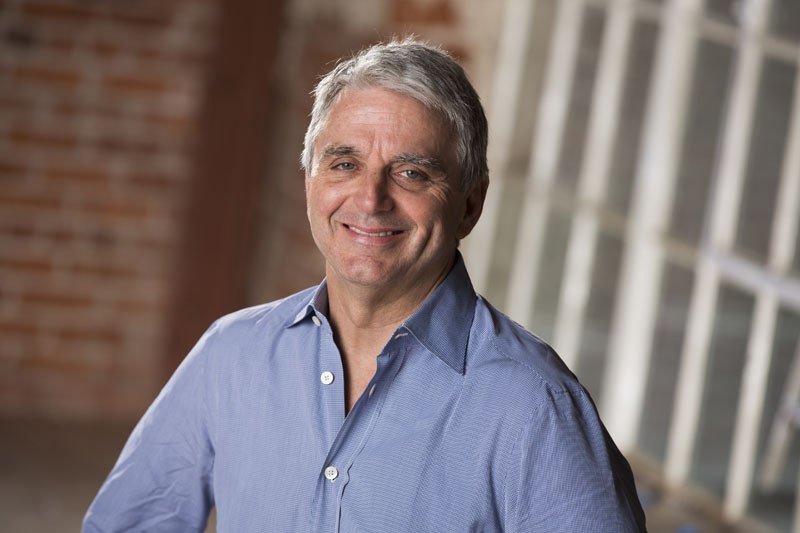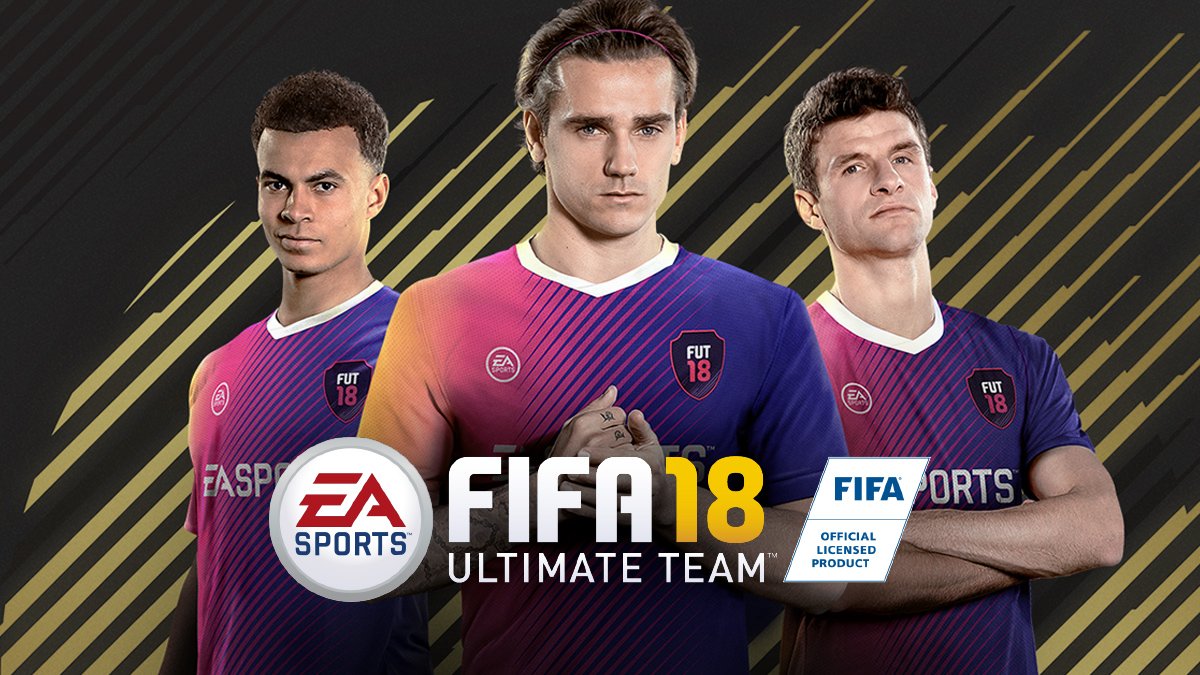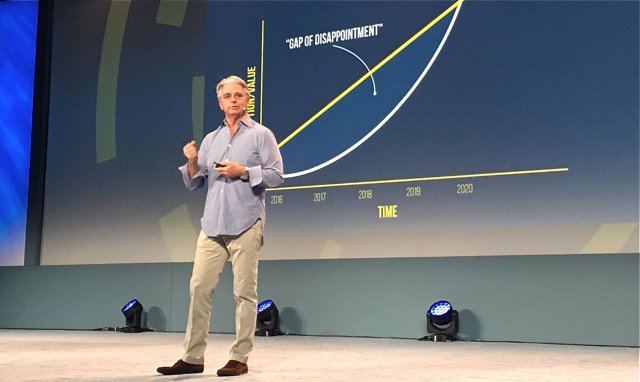
Like Peter Moore, Kaz Hirai or Reggie Fils-Aime, Unity boss John Riccitiello stands out as one of the “big names” in this industry, and for good reason. His wide and varied career has seen him directing brand marketing for consumer product firms like Clorox and Pepsi, presiding over Electronic Arts (EA) from the late ‘90s through 2004, founding a venture capital firm (Elevation Partners) that orchestrated the acquisition of Pandemic and BioWare for EA, and ultimately steering EA through a tumultuous few years when he rejoined as CEO in 2007.
And that’s all before he took the reins at Unity Technologies in 2014. The growth in his almost four years at the tools company has been nothing to sneeze at. Unity claims that games and experiences made with Unity reached more than 3 billion devices worldwide in 2017 and were installed more than 24 billion times in the last 12 months. Ask any indie what engine they’re building their game on, and more often than not the answer will be Unity. This is immensely satisfying to Riccitiello, and not in a “let’s take over the world” way, but because he feels it on a personal level. I could see I touched a nerve when I asked him about it back at GDC this year.
“It started with the vision that Joachim [Ante] had and then David [Helgason] joined, and I’ve been a big part of driving that forward and I feel like I’ve helped shape it in my own way. But I feel like I’m doing the most interesting thing I’ve ever done in my life,” he told me bluntly.
I could see his facial expression changing as he talked about. The sense of fulfillment just bubbled up to the surface – I could see it in his eyes, and I could hear it in his tone.
“Mostly, I’ve always had a love for game and tech. I know this is going to sound soppy and sickening, but I think we’re actually making the world a better place,” he continued. “One more game doesn’t affect the quality of the world unless the game is Journey. You know, there’s a few that sort of met that standard, but for the most part, one more game is just another form of great entertainment.
“There are a few of those things, but there are very few companies that change the landscape like EA did in gaming, or Activision, but on a more world basis the way Unity is doing in content creation. I’m just excited to wake up every morning and do it.”
That’s not to discredit his past or experience with EA in the slightest. In fact, Riccitiello takes enormous pride in setting up EA for the success it enjoys today; he just laments that shareholders couldn’t see it at the time.
I feel like we’re an economic engine that is enabling people to, not just consume content, consume technology, but create it. That just feels really special to me.
“I thought EA was great, too… growing that into a multi-billion dollar business at a time when there were a lot of favorable winds in the game industry, and that was a blast,” he stated. “I got EA out of sports games only and into lots of new things, developed and inculcated things that later became really important to the industry, created franchises like Mirror’s Edge and things that I’m just super proud of. They found a cult audience, but I think they were beautiful…
“Then, unfortunately EA faltered in a very dramatic way over the time where, after I left and after Don Mattrick, who was running the studio left, the thing basically hit the curb. It was lower revenue and 5,000 more people; this is not an equation for profitability. They lost almost $300 million my first year back, and I earned the wrath of the 4,000 people I had to let go because the company was on its way to insolvency.”
He continued, “But I was very proud in the end that the ideas [we put forth worked out]. Everyone was saying the next generation of consoles is not going to work, [but] we held the line and invested heavily and EA’s a leading player in the console world. Mobile was going to be a big thing, and online was going to be a big thing, and we started Origin which is a major driver, started FIFA Ultimate Team, major driver, putting all that stuff in place was exciting. What was not exciting was the street couldn’t see it. But those ideas now underpin EA’s profitability and success, and I feel good about that. But the jollies from that came around essentially saving something, but there were lots of other people that saved them. I’m no savior.”

Overseeing a behemoth like EA is a vastly different role than making an engine accessible enough that even a one-person team can utilize it to realize their creative vision. Riccitiello noted that his time at Unity so far “stands apart quite dramatically” from his previous endeavors. And a big reason why is he gets to personally get involved in the actual product.
“We’re building a platform, and that platform is strategically more interesting than building games. Building games is really the craft of building something beautiful, and as much as I said I was in the middle of that, and did produce directly around game studios for those games, I wasn’t the content creator. I wasn’t the musician. I wasn’t the programmer. I wasn’t the artist. Those are the people that deserve the glory — I was the facilitator. Here, the conception of this platform and all it does, I’m deeply involved and I like that. I’m a product guy,” he remarked.
Looking back at his publishing days, Riccitiello doesn’t think the major publishers look at the industry through the same lens as an engine company. Being a platform for creation means that you have to talk with developers around the world every single day.
“I don’t think a game publisher has the same bead on the world that we do, because we really do wake up with this notion that the world’s a better place with more creators,” he said. “And based on my own personal background, I just know how hard that is to be a creator, the energy that goes into the craft.
“I don’t know how many hours Leonardo da Vinci worked writing the Codex, but I bet you it wasn’t an 8-to-5 job. So that’s what game developers do, and the deck’s stacked against them. There’s tons of competition, the platform companies make it almost dis-economic to operate unless you’re one of the top few at the top. Discovery is friggin’ impossible, and the engineering tasks are huge… I feel like we’re an economic engine that is enabling people to, not just consume content, consume technology, but create it. That just feels really special to me.”
Having a robust engine to facilitate game creation is all well and good, but it wouldn’t be worth a damn if Unity didn’t consistently tweak and improve its tools. Just like developers today will typically have very open development processes to gather feedback from players and iterate, Unity has to absorb tons of information from developers across the globe. And as with any relationship, one of the keys is listening.
“Our listening to feedback is a torrent, all the time… [Our] keynote yesterday could have been described as an 80% listening tour in getting them what they’re asking for, and a 20% ‘we like shiny new things’ story. Right now, ray tracing is a shiny new thing,” he said, alluding to Epic’s focus with Unreal, without naming them directly. “It’s not a practical solution until the ray tracing-centric GPUs arrive and it’s something that comes together in full fruition. It will, and we need to be there, and people need to get used to the technique, so that’s not the point, but at this moment in time it’s been talked about for 25 years, but in reality it’s not a thing that people are building scale production around.”
Rather than focus on “shiny new things,” Unity is aiming to make multiplayer gaming work seamlessly, and to make loading times a thing of the past. Given the importance of games-as-a-service and everything moving online, that seems like a pretty smart move.
“We know people who are building multiplayer games every day, and for the most part, multiplayer capability is a code set that sits on top of a game but is not integrated in the game, and we showed yesterday that we’re building our engine to be sort of a multiplayer native, unlike any engine ever has been,” Riccitiello boasted. “We also know that the networking model for different types of games is different, and everyone else’s solution is a single solution for all games and it doesn’t optimize well that way.
“The demands on the game and a network are really different if you’re playing a real-time-strategy game which is two pieces moved in the last 30 seconds while you’re staring at a game screen… But if I’m playing a first-person-shooter or racing game, there’s a lot of collision detection and issues that got to be solved in that moment in time, perfectly. We also know that the game industry itself is plagued by [loading times]. You click on the game you want to open, ‘one-one thousand…’ That’s too slow for people. That’s not a good performance experience… You can lose somebody in a second, you certainly lose somebody in two and three seconds. We showed how the new run time that we’re deploying now is smaller.
“That causes the game to open like this,” he said, snapping his fingers, “whether streamed or not. That’s wicked cool for anybody that cares.”
Speaking of streaming, so-called cloud gaming has been a buzzword for years now, and yet we’ve seen companies like OnLive and Gaikai come and go. No one’s been able to properly reduce the latency required for a true “Netflix of Games” – especially when faced with the poor internet infrastructure across much of rural America. The belief persists, however. EA CEO Andrew Wilson has said that streaming combined with subscriptions will be the “great disruptor” in the business in just a few years. Ubisoft CEO Yves Guillemot has said similar things, repeatedly. And while Riccitiello acknowledges that streaming will be important, and notes that half of all Unity games in R&D already do stream, he’s not convinced it’s the be-all and end-all tech for gaming.
“When anybody says the future, [and] they name a technology, HTML5, or streaming, or whatever it happens to be, you can rest assured that that’s a solution looking for a problem. Because you want streaming games? I mean, do you care?” he asked me bluntly.
As a matter of fact, I do. The idea behind cloud gaming is an exciting one, and the day we can play games that load in a fraction of a second and with zero latency, millions of players will sign up and I’ll be among them.
“In principle, you don’t care if it’s streamed or not,” Riccitiello countered me, suggesting that increasing hard drive space and faster connections allowing for big game files to be downloaded very quickly will be satisfactory for most.
I will tell you right now, that you’re never going to be able to play a competitive game of League of Legends streamed, with people remote around the world, because the aggregate of the speed of light gets in the way of the performance, so you just can’t get there.
“I will tell you right now, that you’re never going to be able to play a competitive game of League of Legends streamed, with people remote around the world, because the aggregate of the speed of light gets in the way of the performance, so you just can’t get there,” Riccitiello explained. “The question is, ‘What problem are you trying to solve?’ There are always going to be cases where the technology is an enabler of something, but what is the something you want? So I would argue that what the consumer wants is lower cost, higher performance, better looking, better networked; there’s something they’re going to want to get out of it.
“Streaming in some cases, can approach the performance of a native game, but it’s not the performance of a native game. So the question is, ‘What are those circumstances? When does performance not matter? It doesn’t matter with Candy Crush. It doesn’t even matter with asynchronous games like Clash of Clans. And it doesn’t matter with games that are not latency dependent, like Hearthstone. But it really does matter with Call of Duty and Battlefield and FIFA. So you start to say to yourself, ‘Is there a universal desire for streaming?’
“And the next point would be, it costs money to move data from one point to another. We have money. So you say to yourself, let’s take a very high graphics, beautiful game, GTA or Call of Duty, one very multiplayer, one sort of asynchronous with some multiplayer components to it. If you imagine the cost of moving all the pixels from a server to your device, every single time you use it, versus just downloading it once and playing it locally, what do you think the more cost efficient thing to do is? It’s going to be more expensive to deliver it over a network, especially with games now that have so much replay value, where they’re played not just dozens of hours, but hundreds of hours.”
Ultimately, there has to be a real benefit to the consumer. If the cloud technology enables radically improved gameplay possibilities or something cheaper for the consumer, that’s when things get interesting.
“You can assemble Hal the computer in the sky, string together essentially a cluster of CPUs and GPUs that’s a hundred, a thousand, a million times more powerful than your local PlayStation 4 Pro or Xbox or PC. So now I can do something that I’ve never been able to do before,” Riccitiello continued. “When they talk about that, okay, I’m interested. Or, they can tell me that something is going to be instantaneous and fast and I don’t have to waste my hard drive, there’s a little bit of benefit for that. But if they can tell me it’s cheaper, oh I’m starting to get interested now!”
“I think that right now streaming is talked about too much by people who have a desire to talk tech, but they need to meet with their marketing department and talk about what the customer’s actually going to get for it.”

Virtual and augmented reality is another technology that some believe is overhyped. Riccitiello was famously quoted for his “gap of disappointment” comments about the space, but Unity is still very much involved (in fact, Magic Leap is now onboard with Unity) and Riccitiello remains confident in the long-term potential.
“I still have the same faith in this being a $100 billion industry and more in the fullness of, probably another five years. I think that’s absolutely going to happen,” he said.
Whether it’s VR, streaming, traditional games development or something else, Riccitiello is enjoying the chance to get back into the trenches with developers these last few years. He recalled a recent encounter he had with one developer:
“There’s something about those conversations I just really like. One of our developers came in today, and was facing a major gaming design challenge, and sat down with me and I could see what the problem was. I didn’t see the solution, but I knew how to solve the problem, and I walked this particular developer through how to repair the game down to a card game. How you could actually boil down all the choices in what they’re designing, into a collection of cards that four people could play. I said, ‘Until that’s fun… your game will never be fun. You can’t automate something that’s boring and make it fun.’ But that’s a game design challenge I’ve seen before, and I have to admit I was pretty exercised by having the chance to do that again, because I spent a couple decades doing that. So it’s kind of fun to touch back on those things again, and I enjoy it. But I’m actually happy to be back with my engineers doing the work we do.”
 GameDaily.biz © 2025 | All Rights Reserved.
GameDaily.biz © 2025 | All Rights Reserved.